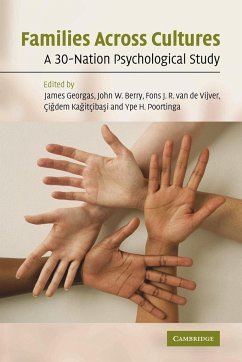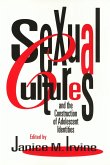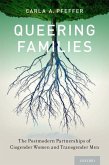A detailed psychological study examining the changing role of the family across different cultures.
Contemporary trends such as increased one-parent families, high divorce rates, second marriages and homosexual partnerships have all contributed to variations in the traditional family structure. But to what degree has the function of the family changed and how have these changes affected family roles in cultures throughout the world? This book attempts to answer these questions through a psychological study of families in thirty nations, carefully selected to present a diverse cultural mix. The study utilises both cross-cultural and indigenous perspectives to analyse variables including family networks, family roles, emotional bonds, personality traits, self-construal, and 'family portraits' in which the authors address common core themes of the family as they apply to their native countries. From the introductory history of the study of the family to the concluding indigenous psychological analysis of the family, this book is a unique source for students and researchers in psychology, sociology and anthropology.
Review quote:
'Led by an editorial team of five exceptionally experienced cross-cultural psychologists, this important book will be immensely beneficial to many social and behavioral scientists. It contributes to an understanding of the nature, meaning and function of the human family unit in varied and even emerging forms across the globe. The volume is wonderfully enhanced by contributions from accomplished psychologists in carefully selected countries. The editors have worked together on a number of research and writing projects, some of them covering more than three decades, which only adds to the credibility of this exciting contribution to the literature.' Walter J. Lonner, Professor Emeritus of Psychology, Western Washington University
'This is a fascinating book which brings together a scholarly consideration of some of the theoretical challenges for understanding families across the world and the concept of 'the family', as well as being an impressive collection of empirical data which demonstrates similarities and differences across different cultures. The book's comprehensive and analytical treatment of this complex topic reflects the editors' experience and authority in the field, and their sensitivity and insight in relation to the field of cross-cultural psychology. This will be an essential resource for developmental and social scientists as cross-cultural issues attain an increasing salience in our understanding of the family.' Professor Ingrid Lunt, Oxford University
Table of contents:
Part I: 1. Families and family change James Georgas; 2. Cross-cultural theory and methodology John W. Berry and Ype H. Poortinga; 3. Theoretical perspectives on family change Çigdem Kagitçibasi; 4. Family portraits from 30 countries: an overview Ype H. Poortinga and James Georgas; 5. Hypotheses John W. Berry, Çigdem Kagitçibasi, James Georgas, Ype H. Poortinga and Fons J. R. van de Vijver; 6. Methodology of the study James Georgas, Fons J. R. van de Vijver, John W. Berry, Çigdem Kagitçibasi and Ype H. Poortinga; 7. Results: cross-cultural analyses of family Fons J. R. van de Vijver, Kostas Mylonas, Vassilis Pavlopoulos and James Georgas; 8. Synthesis: how similar and different are families across cultures? James Georgas, John W. Berry, Çigdem Kagitçibasi, Ype H. Poortinga and Fons J. R. van de Vijver; Part II. The Family Portraits: Ethnographic Descriptions of 30 Nations: Algeria Mustafa M. Achoui; Botswana Adebowale Akande, Bolanle Adetoun and Johnston Osagie; Brazil Claudio V. Torres and Maria Auxiliadora Dessen; Bulgaria Velislava Marinova-Schmidt and Elena Krasteva; Canada Kyunghwa Kwak and John W. Berry; Chile Francisco Donoso-Maluf; China Peter W. H. Lee and Sunita Stewart; Cyprus Neophytos Charalambous; France Gérard Pithon and Olivier Prévôt; Georgia Nana Sumbadze; Germany Heidi Keller; Ghana Benjamin Amponsah, Charity Akotia and Akinsola Olowu; Greece Kostas Mylonas, Katerini Gari, Artemis Giotsa, Vassilis Pavlopoulos and Penny Panagiotopoulou; India Janak Pandey; Indonesia Bernadette N. Setiadi; Iran Shahrenaz Mortazavi; Japan Yukiko Muramoto; Mexico Rolando Diaz-Loving; Mongolia Tuya Buyantsogt; Netherlands Peter Cuyvers; Nigeria Yuwanna Jenny Mivanyi; Pakistan Riffat Moazam Zaman, Taymiya Riffat Zaman and Sunita Stewart; Saudi Arabia Mustafa M. Achoui; Spain Hector Grad; South Africa Adebowale Akande, Bolanle Adetoun and Maggie Tserere; South Korea Uichol Kim and Young-Shin Park; Turkey Bilge Ataca; Ukraine Irina Zhuravliova-Gionis; United Kingdom Robin Goodwin, Sophia Christakopoulou and Vicky Panagiotidou; United States Lia Softas-Nall and Denis G. Sukhodolsky.
Contemporary trends such as increased one-parent families, high divorce rates, second marriages and homosexual partnerships have all contributed to variations in the traditional family structure. But to what degree has the function of the family changed and how have these changes affected family roles in cultures throughout the world? This book attempts to answer these questions through a psychological study of families in thirty nations, carefully selected to present a diverse cultural mix. The study utilises both cross-cultural and indigenous perspectives to analyse variables including family networks, family roles, emotional bonds, personality traits, self-construal, and 'family portraits' in which the authors address common core themes of the family as they apply to their native countries. From the introductory history of the study of the family to the concluding indigenous psychological analysis of the family, this book is a unique source for students and researchers in psychology, sociology and anthropology.
Review quote:
'Led by an editorial team of five exceptionally experienced cross-cultural psychologists, this important book will be immensely beneficial to many social and behavioral scientists. It contributes to an understanding of the nature, meaning and function of the human family unit in varied and even emerging forms across the globe. The volume is wonderfully enhanced by contributions from accomplished psychologists in carefully selected countries. The editors have worked together on a number of research and writing projects, some of them covering more than three decades, which only adds to the credibility of this exciting contribution to the literature.' Walter J. Lonner, Professor Emeritus of Psychology, Western Washington University
'This is a fascinating book which brings together a scholarly consideration of some of the theoretical challenges for understanding families across the world and the concept of 'the family', as well as being an impressive collection of empirical data which demonstrates similarities and differences across different cultures. The book's comprehensive and analytical treatment of this complex topic reflects the editors' experience and authority in the field, and their sensitivity and insight in relation to the field of cross-cultural psychology. This will be an essential resource for developmental and social scientists as cross-cultural issues attain an increasing salience in our understanding of the family.' Professor Ingrid Lunt, Oxford University
Table of contents:
Part I: 1. Families and family change James Georgas; 2. Cross-cultural theory and methodology John W. Berry and Ype H. Poortinga; 3. Theoretical perspectives on family change Çigdem Kagitçibasi; 4. Family portraits from 30 countries: an overview Ype H. Poortinga and James Georgas; 5. Hypotheses John W. Berry, Çigdem Kagitçibasi, James Georgas, Ype H. Poortinga and Fons J. R. van de Vijver; 6. Methodology of the study James Georgas, Fons J. R. van de Vijver, John W. Berry, Çigdem Kagitçibasi and Ype H. Poortinga; 7. Results: cross-cultural analyses of family Fons J. R. van de Vijver, Kostas Mylonas, Vassilis Pavlopoulos and James Georgas; 8. Synthesis: how similar and different are families across cultures? James Georgas, John W. Berry, Çigdem Kagitçibasi, Ype H. Poortinga and Fons J. R. van de Vijver; Part II. The Family Portraits: Ethnographic Descriptions of 30 Nations: Algeria Mustafa M. Achoui; Botswana Adebowale Akande, Bolanle Adetoun and Johnston Osagie; Brazil Claudio V. Torres and Maria Auxiliadora Dessen; Bulgaria Velislava Marinova-Schmidt and Elena Krasteva; Canada Kyunghwa Kwak and John W. Berry; Chile Francisco Donoso-Maluf; China Peter W. H. Lee and Sunita Stewart; Cyprus Neophytos Charalambous; France Gérard Pithon and Olivier Prévôt; Georgia Nana Sumbadze; Germany Heidi Keller; Ghana Benjamin Amponsah, Charity Akotia and Akinsola Olowu; Greece Kostas Mylonas, Katerini Gari, Artemis Giotsa, Vassilis Pavlopoulos and Penny Panagiotopoulou; India Janak Pandey; Indonesia Bernadette N. Setiadi; Iran Shahrenaz Mortazavi; Japan Yukiko Muramoto; Mexico Rolando Diaz-Loving; Mongolia Tuya Buyantsogt; Netherlands Peter Cuyvers; Nigeria Yuwanna Jenny Mivanyi; Pakistan Riffat Moazam Zaman, Taymiya Riffat Zaman and Sunita Stewart; Saudi Arabia Mustafa M. Achoui; Spain Hector Grad; South Africa Adebowale Akande, Bolanle Adetoun and Maggie Tserere; South Korea Uichol Kim and Young-Shin Park; Turkey Bilge Ataca; Ukraine Irina Zhuravliova-Gionis; United Kingdom Robin Goodwin, Sophia Christakopoulou and Vicky Panagiotidou; United States Lia Softas-Nall and Denis G. Sukhodolsky.








